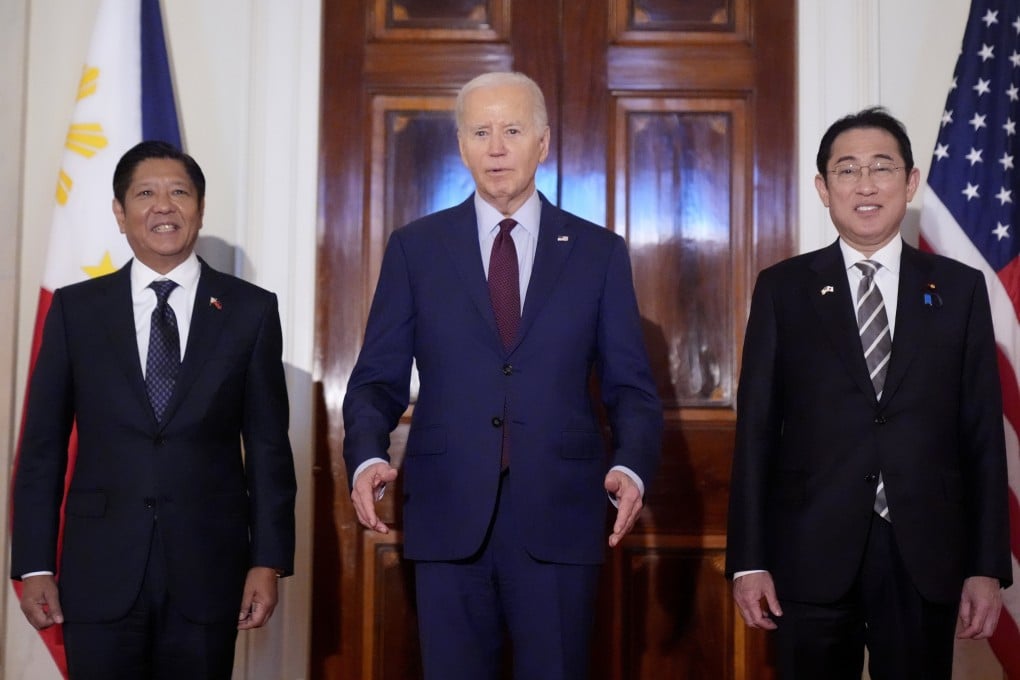Advertisement
Biden-Kishida-Marcos Jnr meeting shows ‘ironclad’ support for Philippines amid China confrontations
- Trilateral represents ‘new era’ of partnership, says US leader, producing security, economic and diplomatic initiatives in show of unity with Manila
- ‘Any attack on Philippine aircraft vessels or armed forces in the South China Sea would invoke our mutual defence treaty,’ Biden adds
Reading Time:4 minutes
Why you can trust SCMP
37

Mark Magnierin New York
US President Joe Biden, meeting on Thursday with Japanese Prime Minister Fumio Kishida and Philippine President Ferdinand Marcos Jnr at the White House, said their trilateral summit represented a “new era of a partnership” designed to show strong support for the Philippines as it comes under growing pressure from China.
In a show of unity with Manila, the leaders also announced a series of security, economic and diplomatic initiatives, including a “Luzon Economic Corridor as part of a Group of 7 infrastructure programme and a critical minerals processing plant.
“United States defence commitments to Japan, and to the Philippines, are ironclad, they’re ironclad,” Biden said in the East Room of the White House. “Any attack on Philippine aircraft vessels or armed forces in the South China Sea would invoke our mutual defence treaty.”
Advertisement
Last month saw two naval confrontations involving Chinese coastguard and maritime militia forces and the Philippine coastguard, the latest in a series of similar incidents in recent years.
Beijing asserts that over 80 per cent of the South China Sea is its sovereign territory, putting some of this in contention with competing claims by Brunei, Indonesia, Malaysia, the Philippines, Taiwan and Vietnam.
Advertisement
The US-Japan-Philippines trilateral showcased on Thursday was the latest in a series of groupings started or reinvigorated by the Biden administration as it works to counter a more economically and militarily assertive China in the region.
Advertisement
Select Voice
Select Speed
1.00x